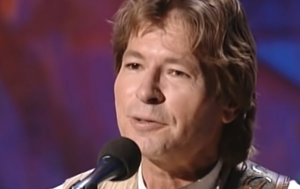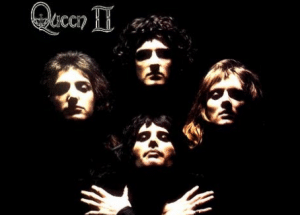Stevie Nicks Share Her Favorite Tom Petty Song

via WORK4ROCK / Youtube
There’s no disputing that Stevie Nicks and Tom Petty share a rock icon status rooted in similarity. From their cascading golden locks to their electrifying, powerhouse vocals, and a mutual talent for creating irresistibly catchy singalong choruses, the pair undeniably hail from the same musical realm.
Expressing this connection, Nicks stated in the documentary feature Runnin’ Down A Dream, “I almost preferred the Heartbreakers’ music to Fleetwood Mac’s music at that point.”
When asked about her favorite track by the band, Nicks singled out “Don’t Come Around Here No More”.
What adds a fascinating layer to this choice is that she played a direct role in inspiring the song, solidifying the profound connection between her and the band.
A cosmic connection like no other
The cosmic connection between Stevie and Tom was not lost on either of them.
Nicks held such admiration for the band that she once expressed a desire to join, to which Petty humorously retorted, “Sorry, no girls allowed”.
Nevertheless, this didn’t hinder the development of a strong friendship and a lasting mutual respect.
While their friendship had its occasional bumps, such as an incident where Nicks nearly appropriated “Runaway Trains” after picking up a cassette from Petty’s house and mistakenly thought it was her own song, the two songwriters predominantly shared a deep, enduring bond and mutual admiration.
https://twitter.com/dvrkofthesun/status/1726966614615376306
An incident that Dave Stewart witnessed became an inspiration
“Don’t Come Around Here No More” was collaboratively written with Dave Stewart of the Eurythmics, who found himself in the midst of a somewhat tumultuous incident involving the music icon.
Following an early Eurythmics concert in Los Angeles, Nicks extended an invitation to Stewart for a house party at her residence, a home she no longer shared with Joe Walsh of the Eagles as of the previous night.
As the majority of the gathering gravitated towards the bathroom for a couple of hours of indulgence, a weary Stewart retreated upstairs and settled onto a bed.
In the early hours of the following morning, he awoke to a surreal scene reminiscent of an Alice in Wonderland fever dream, with Nicks hastily trying on an assortment of Victorian clothing in the room.
https://twitter.com/Fernando_Zapico/status/985278861402427392
The title was Nicks’ defiant decree against Joe Walsh
At this inconvenient moment, Walsh decided to drop by and try to mend things with the Fleetwood Mac songstress.
However, the intoxicated Nicks, clad in a corset, ended up tossing his belongings onto the pavement and defiantly declared, in her characteristic growl, “Don’t come around here no more”.
This resonated with Stewart, prompting him to try to immortalize the moment in a song. When he later discussed his struggle to complete the track with producer Jimmy Iovine, another of Nicks’ past flames, Iovine suggested handing it over to Petty for the finishing touches.
Petty took charge and believed the song would suit Nicks well. However, upon hearing his vocal take, Nicks felt she could never quite surpass it.
The Heartbreakers owned the song
Fate took an unexpected turn as the song seamlessly nestled itself into the repertoire of the Heartbreakers, ultimately earning the coveted status of Stevie Nicks’ favorite among all the tracks by the beloved band.
This deep-seated fondness for the song manifested when Nicks, in a nostalgic journey through her musical past, chose to honor it during her appearance on the BBC’s Tracks of My Years.
While the song’s thematic essence delves into the realm of heartbreak and separation, its significance extends far beyond the confines of a breakup anthem. Instead, it emerges as a resilient testimony to the remarkable capacity of adversity to undergo transformation.
The song, like a beacon of enduring strength, stands as an eloquent illustration of how the twists and turns of fate can metamorphose moments of hardship into something profound, enduring, and imbued with profound meaning.












